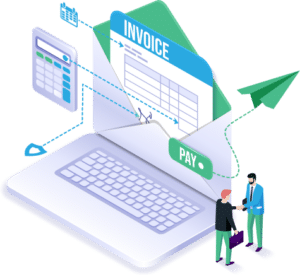When a law firm has decided the time has come to replace antiquated case management systems, or implement one for the first time to ensure the entire team has access to all case information no matter where they are working, the next steps are to define the business needs and then evaluate providers.
Step 1 – Determine Your Firm’s Needs and Evaluate Providers
Defining Legal Case Management Business Needs
At AdvoLogix, we recommend keeping requirements high level and focused on business needs. Here are 10 questions to ask that will help you prioritize:
- Do your professionals have a need to access important case information wherever and whenever they want?
- How available does the new platform need to be?
- Do you need workspace that is organized around matters?
- Do you want integration with time and billing?
- Do you need document management features integrated into the case management platform?
- What security regulations, policies, guidelines and recommendations do you have to work with?
- What governance compliance, geographic/jurisdictional data regulations and privacy issues do you need to consider?
- Do you want your clients to be able to access information and collaborate on the case using your case management platform?
- How will you budget for the expense of a new legal case management platform?
- Do you want to integrate with other software to increase productivity?
Evaluating Legal Case Management Providers
There are many legal case management providers out there today, with different sweet spots in terms of features.
Once you are down to a select few providers, we recommend you focus on the following key areas, and ask the same questions of each provider to get insights into their features and benefits.
- Matter-Centric Features and Functions. Does the case management system offer features that allow you to log calls, send emails, schedule a meeting, manage matter participants, stay on top of critical dates, oversee workflow, KPIs and performance?
- Client-Centric Portals – Do you need to provide higher levels of service, new web-based offerings, and higher levels of efficiency with high-value client or stakeholder access?
- Does the solution allow for access and full functionality via phone, tablet or any connected device, no matter where you are working?
- Can you use the system you are evaluating to collaborate on matters with clients and other associated parties?
- Timekeeping and Billing. Can we track time in context with the case workflow? Can we get a 360-degree view of the firm’s profit and productivity?
- Document Management. Can we relate documents to matters, accounts, contacts or discussion threads?
- Does the platform offer physical protection, user authentication, access control, privacy and more?
- Governance Compliance, Geographic/Jurisdictional Data Regulations and Privacy. Does the supplier’s infrastructure accommodate for global privacy laws and directives?
- How is the legal case management system under consideration priced?
- Availability/Recoverability. What availability level can the firm expect to receive from the application, and does that availability estimate includes planned outages?
- Does the platform integrate with accounting, document management, CRM, contract management, email, telephones and other important applications your firm uses every day?
- Cloud Based. Is the system software as a service (SaaS), platform as a service (PaaS) or infrastructure as a service (IaaS)?
To help further your firm’s evaluation process and facilitate a confident decision, AdvoLogix has developed a complete Buyer’s Guide for Legal Case Management, which is available to download for free.
Step 2 – Define a Pilot Project & Implement a Solution
When law firms have decided the time has come to advance their case management approach and has narrowed the possible solution providers down to the two or three who are most qualified, many firms take the time to run a pilot project. A pilot project enables your firm to evaluate how well you work with the provider, and whether the platform will be able to conform to the unique needs of your law practice.
We recommend you take these nine steps to help you define your organization’s pilot project:
- Form a team who can dedicate time to the pilot project. Pilot projects do not get done with “spare time”. Both you and the vendor must allocate dedicated resources to the degree necessary to execute the pilot in a timely manner.
- Pick a practice area and determine what specific business benefits you are looking to achieve. Determine what specific capabilities will prove those benefits.
- Document business goals, capabilities that will demonstrate these goals, and success criteria to prove each objective.
- Get management buy-in for next steps if the pilot is successful such as financial commitments for practice area or firm deployment. If you don’t have this, why are you doing a pilot?
- Consider the complete legal process. For example, evaluate matter intake and related matter types with defined data collection, associated documents, and workflows.
- Look at three different functional roles (personas) and see how these users are supported in their daily tasks, workflow, dashboards, reporting and business objectives.
- Evaluate how the solution can best manage a matter throughout a lifecycle that fits your firm.
- Look for overall ability to configure and conform to your unique workflows and the flexibility to add additional integrations and capabilities from the application eco-system.
- Avoid spending too much time in low level details as you can lose sight of the business problem that is being solved, which is the primary justification for implementing automated matter management.
Pilot projects help firms manage and minimize risk, help firms identify roadblocks, and resolve any issues before substantial time and money is invested in an implementation. Once your team is satisfied with the pilot project, you will feel confident implementing the solution across the entire firm.
AdvoLogix has a free resource to help further your firm’s evaluation process and facilitate a confident decision. Download our Buyer’s Guide for Legal Case Management here.




